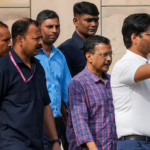After March 13, the Election Commission of India (ECI) is anticipated to make an announcement regarding the calendar for the Lok Sabha elections 2024, according to a story that was published on Friday by India Today, which cited sources from the ECI. The teams of the Election Commission are currently conducting an assessment of the ability of various states to prepare for the upcoming election. It is anticipated that the exercise will be completed by March 13 at the latest.

The senior officials of the Election Commission of India are currently holding regular meetings with the Chief Electoral Officers (CEOs) of a number of different states in order to identify potential issue areas in advance of the elections. In the report, it was mentioned that the Election Commission of India (ECI) is now discussing practical issues such as the movement of electronic voting machines (EVMs), the demand of security personnel, and the vigilance along state borders, among other things.
The Environmental Commission (EC) teams are scheduled to travel to a number of states in the next weeks, including West Bengal, Bihar, Tamil Nadu, and Uttar Pradesh, according to reports that cite sources. There have been reports that it will travel to Jammu and Kashmir on March 13th.In the Lok Sabha elections that will take place this year, the polling authority has stated that about 97 crore Indians would be eligible to vote.
This is a 6% increase in the number of registered voters compared to 2019. Following the intense Special Summary Revision 2024 that lasted for several months, the Election Commission of India started publishing the electoral rolls in all of the states and union territories across the country at the beginning of February.
Election Commission gives Sharad Pawar’s party new symbol.
In addition, there are efforts being made to determine whether or not it would be possible to organize simultaneous elections throughout the nation. On Wednesday, a High-Level Committee that had been chaired by the former President Ram Nath Kovind convened a meeting to examine the activities that it had been conducting in this respect. Additionally, on Monday, the One Nation One Election team met with former Chief Justices Deepak Mishra and SA Bobde for consultations related to the election.









